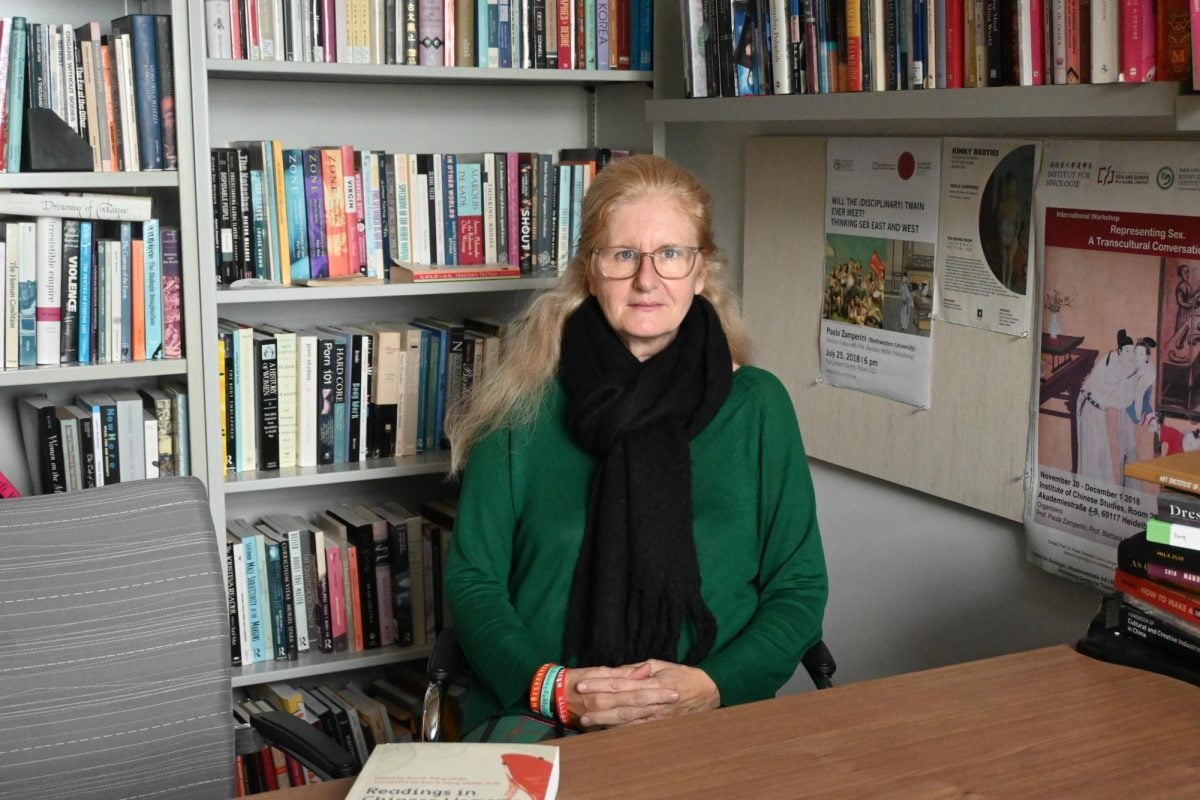Chinese literature and culture Prof. Paola Zamperini was recruited by Northwestern in 2013 as the founding chair of the Department of Asian Languages and Cultures.
In the years since the department’s establishment, Zamperini has played a key role in expanding the department’s faculty and launching new study courses at both the undergraduate and graduate level.
This quarter, Zamperini is teaching “Sinophone Feminisms,” which covers both her areas of expertise — Chinese literature studies and gender studies.
As a native Italian and first-generation college student, Zamperini first got a taste of Chinese culture when she first began studying abroad in Seattle, where she met many Chinese and Chinese American students.
After this experience, she earned a Ph.D. in Chinese Literature and Women and Gender Studies from the University of California at Berkeley.
This interview has been lightly edited for brevity and clarity.
The Daily: What drew you to the fields of Asian Languages and Cultures as well as Gender and Sexuality Studies?
Zamperini: As an undergraduate in Italy from an Italian, monoethnic household, I had never met people of diverse backgrounds until I studied abroad for a year in Seattle. There, I met many Chinese and Chinese American students, and soon after I became interested in Chinese culture.
As for why I chose to pursue these studies, I did so because I didn’t know anything about these fields and wanted to learn more about them. After all, don’t we study to learn?
When I told my family that I wanted to pursue this path, they were a little worried at first, which isn’t very surprising. But my father was very supportive of me, and in an Italian family, the father makes all of the decisions.
The Daily: What was it like to develop a new department of study at Northwestern?
Zamperini: It was definitely hard, but I don’t want you to think I did it all by myself. I had help from my colleagues at Northwestern and people who studied Asian studies. I was hired to put the department together because I had experience putting together a department at other universities. It was thanks to the core group of faculties that worked together that made this new department, and I think it is a beautiful thing to create a new space.
The Daily: How do you wind down after a long day of teaching?
Zamperini: Usually, I like to blow bubbles outside or spend some time tending to my garden. Those things are a good way for me to relax after a long day. These activities are very different from a day of lively discussions in the classroom, so I like to take some time to myself to do these things.
The Daily: What makes teaching difficult?
Zamperini: Before I answer this question, I want you to know that I love interacting with students and answering their questions. It is all very invigorating for me. That’s the easy part, talking to students and teaching them new things and listening to their thoughts in class.
I don’t want you to think I don’t enjoy my job, because I truly love teaching. The only hard part, as a teacher, is responding to emails and meeting assignment deadlines. That’s the only part that can be difficult and stressful at times. But even then, I love teaching enough that I’ll do it all again.
Clarification: This story has been updated to better Zamperini’s involvement as the sole founding chair of the Department of Asian Languages and Cultures.
Email: [email protected]
Related Stories:
— Six Northwestern professors named 2024 Guggenheim Fellows
— Northwestern professor Brenna Argall featured on CBS’s “Mission Unstoppable”






